
 Podcasts
PodcastsCatch the latest PR news & updates with PRovoke Media's PR Podcasts. Lifting the lid on key industry stories & trends, join our listeners of PR podcasts today.
 Videos
VideosLatest video interviews and campaigns from PRovoke Media, previously known as the Holmes Report.
Long-form journalism that analyzes the issues, challenges and opportunities facing the business and practice of PR.
 Profiles & Interviews
Profiles & InterviewsExplore PR profiles and interviews with leaders from the marketing and PR worlds.
 Crisis Review
Crisis ReviewPR Crisis & Business Crisis review. PRovoke Media's annual analysis of the top reputation crises to rock the corporate sector. Read on here.
 Coronavirus
CoronavirusPRovoke Media's coverage of the Covid-19 crisis, focusing on corporate communication, public affairs & PR industry fallout.
 Trend Forecasts
Trend ForecastsPRovoke Media's PR Trends round up. PRovoke Media's annual forecast of PR trends and news that will impact the PR world in the year ahead...
 Social & Digital
Social & DigitalDedicated to exploring the new frontiers of PR as it dives deeper into social media, content and analytics.
 Technology
TechnologyOur coverage of key technology PR trends and challenges from around the world of digital communications.
 Consumer
ConsumerFrom brand marketing to conscious consumerism, coverage of key marketing and PR trends worldwide.
 Employee Engagement
Employee EngagementPRovoke Media's coverage, analysis and news around the rapidly-shifting area of employee engagement and internal communications.
 Sports Marketing
Sports Marketing Sports PR news, diversity & inclusion trends, views and analysis from PRovoke Media. Subscribe today for the very latest in the world of sports communications.
 Global PR Agency Rankings
Global PR Agency RankingsPRovoke Media's definitive global benchmark of global PR agency size and growth.
Enter PRovoke Media's 2024 Global 250 Agency Ranking and/or our Agencies of the Year competitions now.
 Agencies of the Year
Agencies of the YearPRovoke Media's annual selections for PR Agencies of the Year, across all of the world's major markets.
 Innovator 25
Innovator 25PRovoke Media profiles marcomms innovators from across North America, EMEA and Asia-Pac.
 Creativity in PR
Creativity in PRIn-depth annual research into the PR industry's efforts to raise creative standards.
 Asia-Pacific Communication Index
Asia-Pacific Communication IndexAPACD/Ruder Finn annual study of Asia-Pacific in-house communications professionals.
 SABRE Awards
SABRE AwardsThe world's biggest PR awards programme, dedicated to benchmarking the best PR work from across the globe.
 PRovokeSummit Global
PRovokeSummit GlobalThe biggest PR conference of the year, a high-level forum designed to address the critical issues that matter most.
 PRovoke Media Regional Series
PRovoke Media Regional SeriesA global network of conferences that explore the innovation and disruption that is redefining public relations.
 Agencies of the Year
Agencies of the YearUnrivalled insight into the world's best PR agencies, across specialist and geographic categories.
 Roundtables
RoundtablesOur Roundtables bring together in-house comms leaders with PR firms to examine the future of communications.
 Agency Playbook
Agency PlaybookThe PR industry’s most comprehensive listing of firms from every region and specialty
.jpg) All Jobs
All JobsFind the latest global PR and communications jobs from PRovoke Media. From internships to account executives or directors. See all our PR jobs here.
PRovoke Media's editorial series published in collaboration with partners.
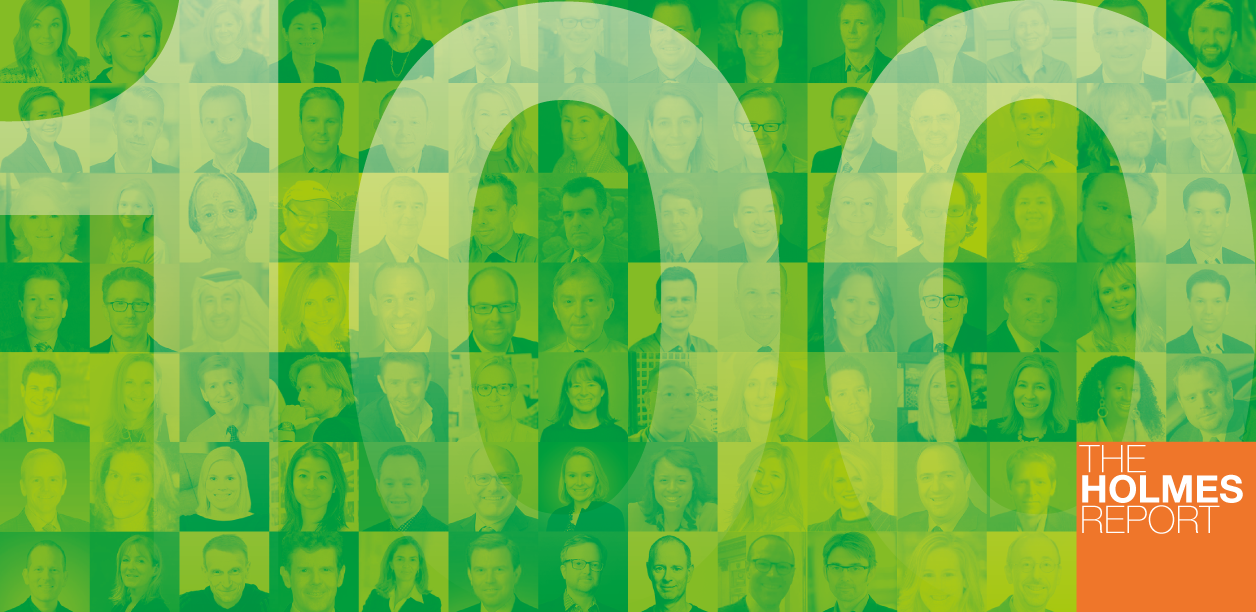
Introduction & Methodology | Profiles | Demographics & Background | Teams, Budgets & Agencies | Future Challenges, Diversity & Inspiration | Crossover Stars | Rising Stars | Sponsored Content: Digital Reductionism
The following data is based on responses from a survey sent to this year's Influence 100, and where applicable, further analysis. Some percentages might not equal exactly 100% due to rounding. We asked our Influence 100 how their CEO evaluates PR and communications, and reputation benchmarking came out even more far ahead of the other options: over 80% compared with 63% last year. While sales and lead generation garnered zero responses in 2017, this year it was cited as one of the ways the C-suite measures the success of comms by a solid 17% of respondents. Tactical measurement of PR, including impressions, reach and social engagement, was also, unsurprisingly, used by 52% of our influencers’ CEOs. Of the 14% who said they used other means, the responses varied widely from “overall improvement in brand rankings and specific return on agreed campaign objectives” to the rather less robust “gut feel” and “anecdotal evaluation”.
We asked our Influence 100 how their CEO evaluates PR and communications, and reputation benchmarking came out even more far ahead of the other options: over 80% compared with 63% last year. While sales and lead generation garnered zero responses in 2017, this year it was cited as one of the ways the C-suite measures the success of comms by a solid 17% of respondents. Tactical measurement of PR, including impressions, reach and social engagement, was also, unsurprisingly, used by 52% of our influencers’ CEOs. Of the 14% who said they used other means, the responses varied widely from “overall improvement in brand rankings and specific return on agreed campaign objectives” to the rather less robust “gut feel” and “anecdotal evaluation”.
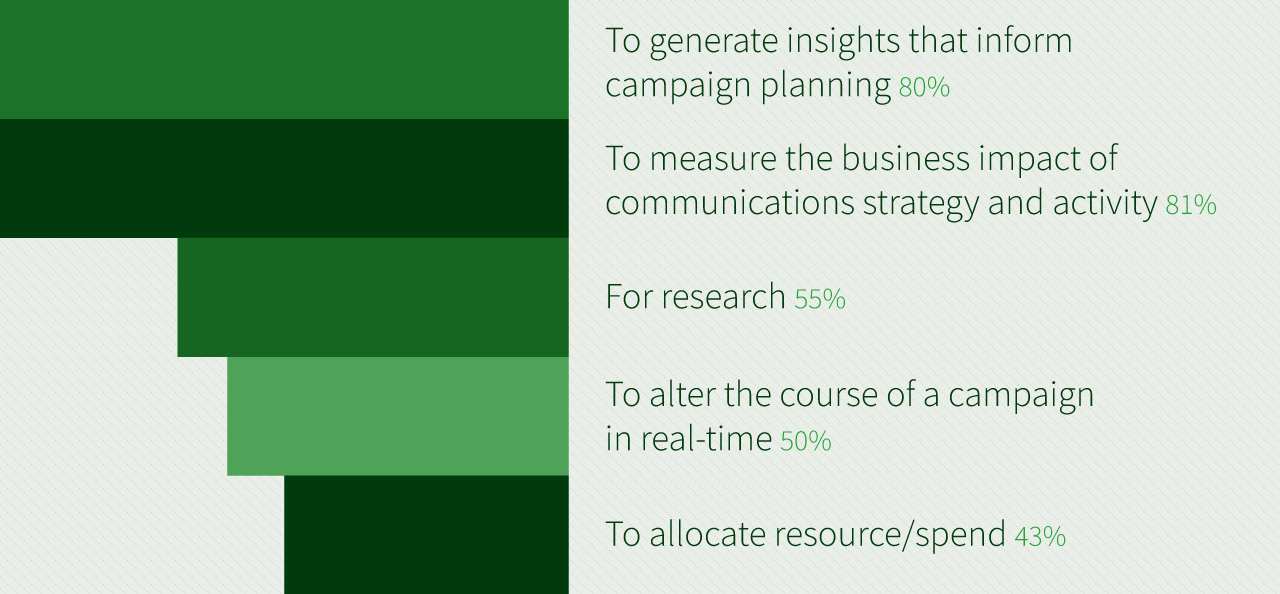 Looking at the ways in which our respondents and their teams use data and analytics, many more this year said they use data to allocate resource and spend: 43%, compared with 30% in 2017. Data and analytics are used by 55% of the Influence 100 for research purposes, and 50% to then tweak campaigns in real time. The strongest responses, however, were for data and analytics being used to generate insights that inform campaign planning (81%), and that measure the business impact of comms strategy and activity (also 81%).
Looking at the ways in which our respondents and their teams use data and analytics, many more this year said they use data to allocate resource and spend: 43%, compared with 30% in 2017. Data and analytics are used by 55% of the Influence 100 for research purposes, and 50% to then tweak campaigns in real time. The strongest responses, however, were for data and analytics being used to generate insights that inform campaign planning (81%), and that measure the business impact of comms strategy and activity (also 81%).
“Further integration of the roles as this is the reality of our world.”
“Continued merging of responsibilities, which will present some friction.”
“The CCO role will continue to gain prominence as companies feel the impact of reputation challenges. I do think marketing and communications will continue to blend together.”
“Closer integration, overlap, and perhaps eventually merge.”
“The gravitational pull drawing them together will only increase. One ecosystem.”
“Increasingly intertwined, and more opportunities to have a seat on the board.”
“As communications, and earned media, gain more respect for the value they bring to brand building, CCOs will carve out a more significant and influential role within the two disciplines, and we will see more CCOs take overall ownership of integrated functions as CMCO.”
“They will increasingly work together in a tighter, more integrated fashion. There is no choice but to do so; our constituencies overlap to such an extent that it is imperative.”
“CCOs will increasingly have a seat on executive committees/boards in view of the importance of their advisory role on matters of reputation and company and CEO positioning in an increasingly fractured world. However, CMOs and CCOs will need to increasingly collaborate as the divide between earned, owned and paid channels continue to blur.”
“Big impact in the medium and long term as AI is employed to help advance stakeholder engagement, both internal and external.”
“They will make the industry think and change the way data is garnered and analysed. In the long term they will become a robust partner for insights generation, measurement, predictions and will help communicators take better decisions.”
“Targeted advertising on social media platforms will take budget away from some PR functions.”
“Ultimately better campaigns – creation and delivery of targeted messages. In the medium term: more accurate and affordable PR technologies.”
“These technologies are transforming communications, marketing and stakeholder engagement across every industry.”
“Longer-term it could have a tremendously beneficial effect in terms of data analysis, evaluation and targeted, personalised campaigns.”
“Main impact in the medium term, particularly if AI can generate intelligent content.”
“Medium term it will help to optimize allocation of resources, long term it will create moral challenges as machines will start to have opinions.”
“Major medium to long term impact as algorithms will increasingly be used to segment and target audiences in real time. Already having an impact on news coverage, as bots now generate 5% of Bloomberg's coverage output.”
“Hopefully they will help creating more impactful and targeted marketing in more effective industry. AI will probably demand completely new capabilities and create new professions in the industry in the long term. There will be competition over qualified professionals.”

 Diversity in all its facets continues to be big theme for the communications and marketing sector, and so this year we broadened our questioning around this subject, both in terms of what CCOs require of their PR agencies, and how committed they think the industry is to diversity. The number of CCOs who agree their PR agencies must have an ethnically diverse team was down overall to 68%, but the number who agreed strongly was up from 12% to 25%. A further 28% were neutral, up from 19% last year, leaving only a handful or respondents who disagreed with this statement.
Diversity in all its facets continues to be big theme for the communications and marketing sector, and so this year we broadened our questioning around this subject, both in terms of what CCOs require of their PR agencies, and how committed they think the industry is to diversity. The number of CCOs who agree their PR agencies must have an ethnically diverse team was down overall to 68%, but the number who agreed strongly was up from 12% to 25%. A further 28% were neutral, up from 19% last year, leaving only a handful or respondents who disagreed with this statement.
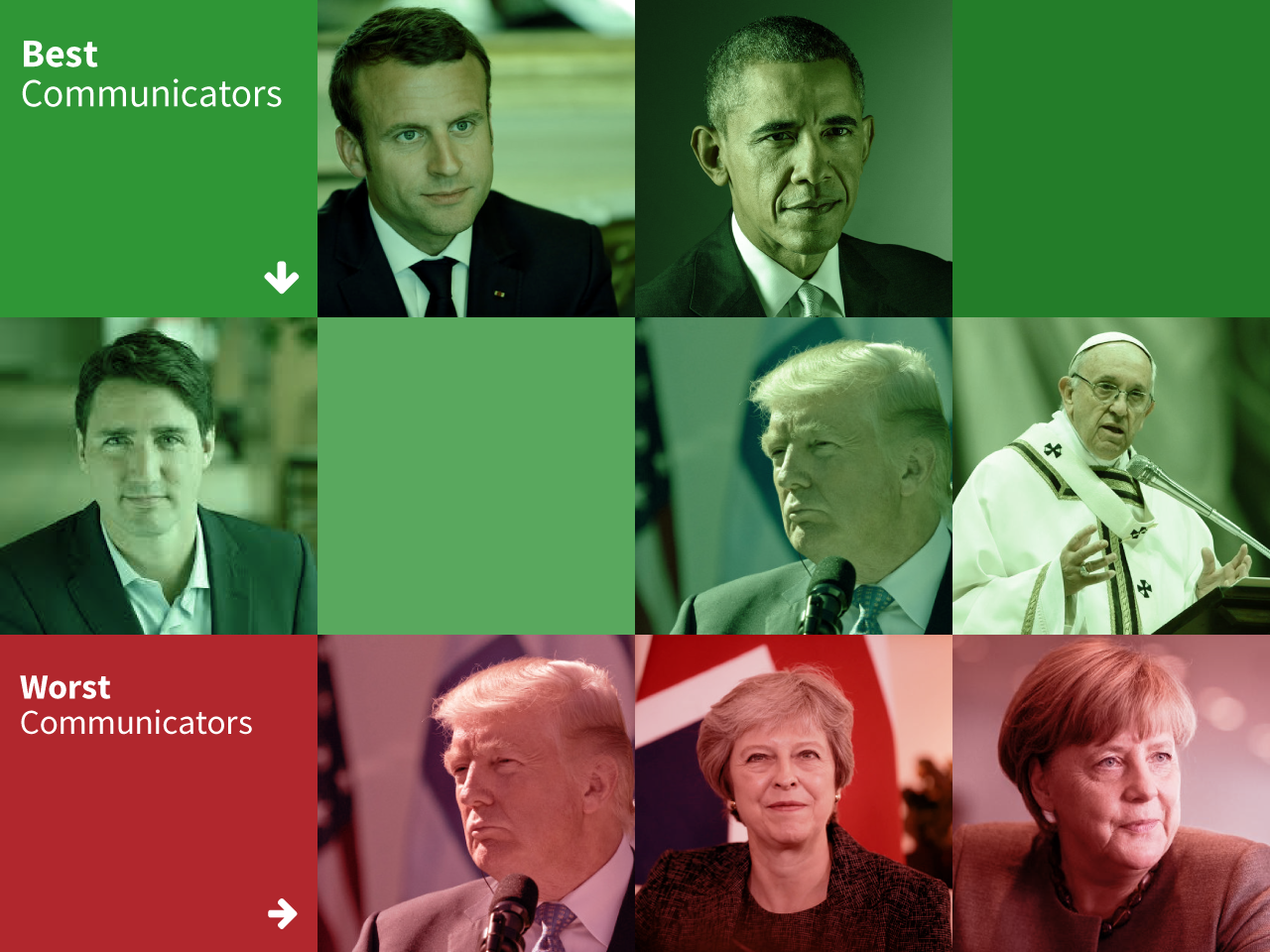 Former US president Barack Obama (“elegant and persuasive”) was back on the nominees for the best communicator among world leaders this year, along with Canadian prime minister Justin Trudeau (“winning hearts and minds”) and French president Emmanuel Macron. Pope Francis was again on the list: the only spiritual leader mentioned this year. Interestingly, German chancellor Angela Merkel was mooted as one of the worst communicators this year, having been on the list of the best among world leaders last year. British prime minister Theresa May, grappling with Brexit, was mentioned several times on the worst list.
Former US president Barack Obama (“elegant and persuasive”) was back on the nominees for the best communicator among world leaders this year, along with Canadian prime minister Justin Trudeau (“winning hearts and minds”) and French president Emmanuel Macron. Pope Francis was again on the list: the only spiritual leader mentioned this year. Interestingly, German chancellor Angela Merkel was mooted as one of the worst communicators this year, having been on the list of the best among world leaders last year. British prime minister Theresa May, grappling with Brexit, was mentioned several times on the worst list.
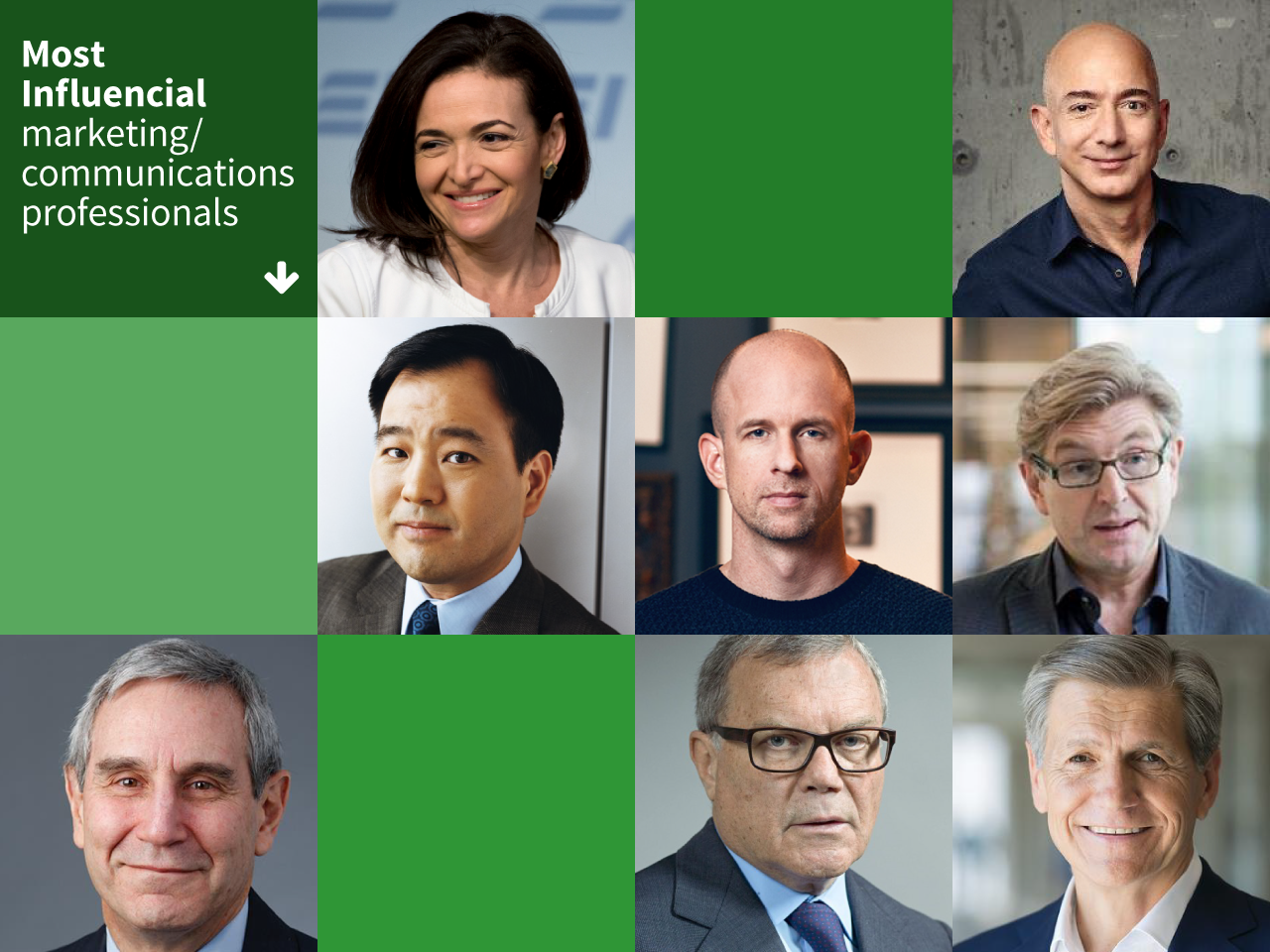 The nominees for most influential professional again featured business leaders as well as marketing and communications heads. The list was also once again dominated by men, with Sheryl Sandberg the only female spokesperson mentioned. IBM's retired chief brand officer Jon Iwata was listed several times in glowing terms, along with former WPP head Sir Martin Sorrell and Richard Edelman. Among others nominated were Unilever's chief marketing and communications officer Keith Weed, Amazon CEO Jeff Bezos, and Apple's vice president of marketing communications Tor Myhren.
The nominees for most influential professional again featured business leaders as well as marketing and communications heads. The list was also once again dominated by men, with Sheryl Sandberg the only female spokesperson mentioned. IBM's retired chief brand officer Jon Iwata was listed several times in glowing terms, along with former WPP head Sir Martin Sorrell and Richard Edelman. Among others nominated were Unilever's chief marketing and communications officer Keith Weed, Amazon CEO Jeff Bezos, and Apple's vice president of marketing communications Tor Myhren.
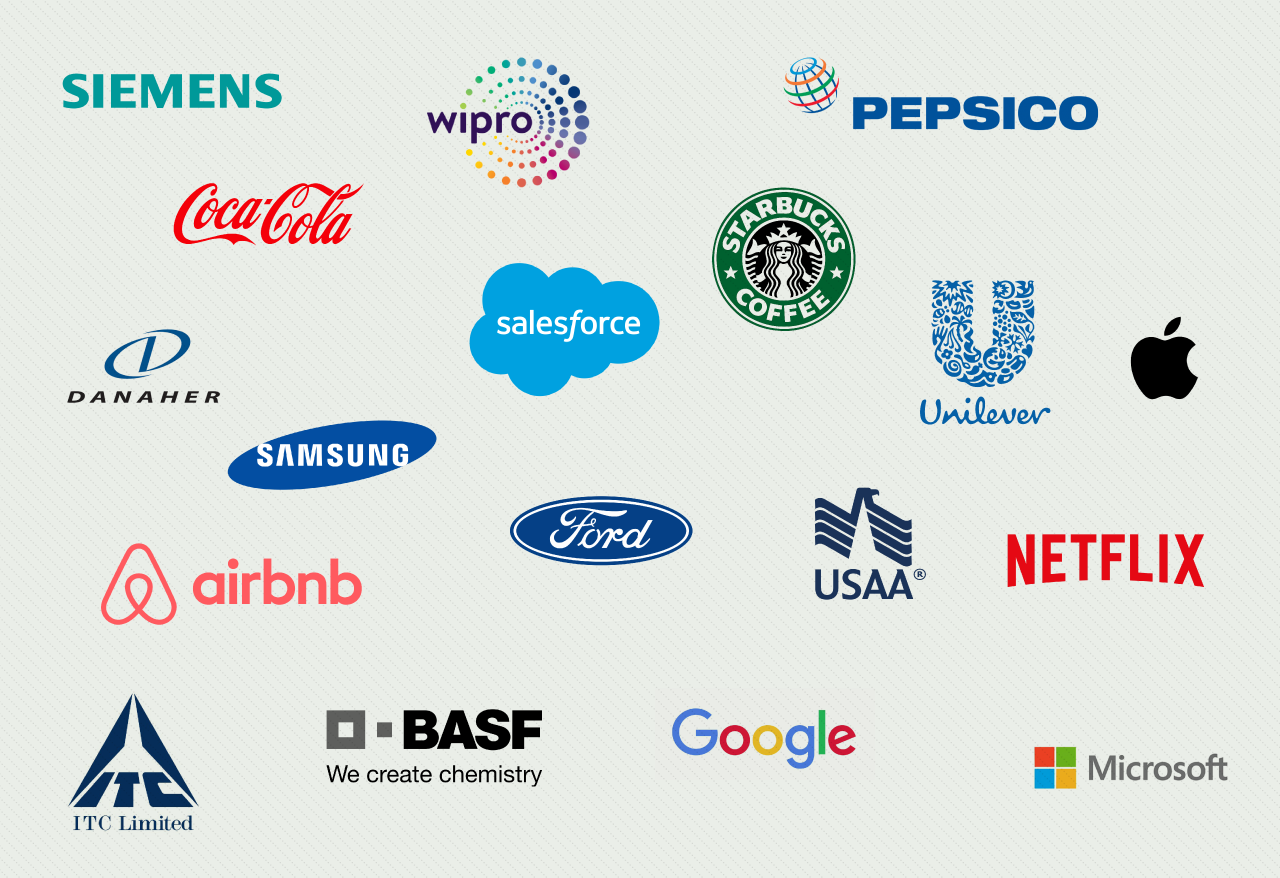 Asked to identify companies that managed brand communications and corporate reputation most effectively, the list of nominees showed great continuity from past years, reinforcing the lasting effects of a well-managed reputation. Among the returning names were Unilever, Starbucks, Apple, Tata Group, Netflix, Microsoft and Google. New this year were Ford, Siemens, Samsung, PepsiCo (perhaps surprisingly given the furore over the Kendall Jenner ad earlier this year), Airbnb, USAA, BASF, Danaher, ITC, Wipro, Salesforce and Coca-Cola.
Asked to identify companies that managed brand communications and corporate reputation most effectively, the list of nominees showed great continuity from past years, reinforcing the lasting effects of a well-managed reputation. Among the returning names were Unilever, Starbucks, Apple, Tata Group, Netflix, Microsoft and Google. New this year were Ford, Siemens, Samsung, PepsiCo (perhaps surprisingly given the furore over the Kendall Jenner ad earlier this year), Airbnb, USAA, BASF, Danaher, ITC, Wipro, Salesforce and Coca-Cola.
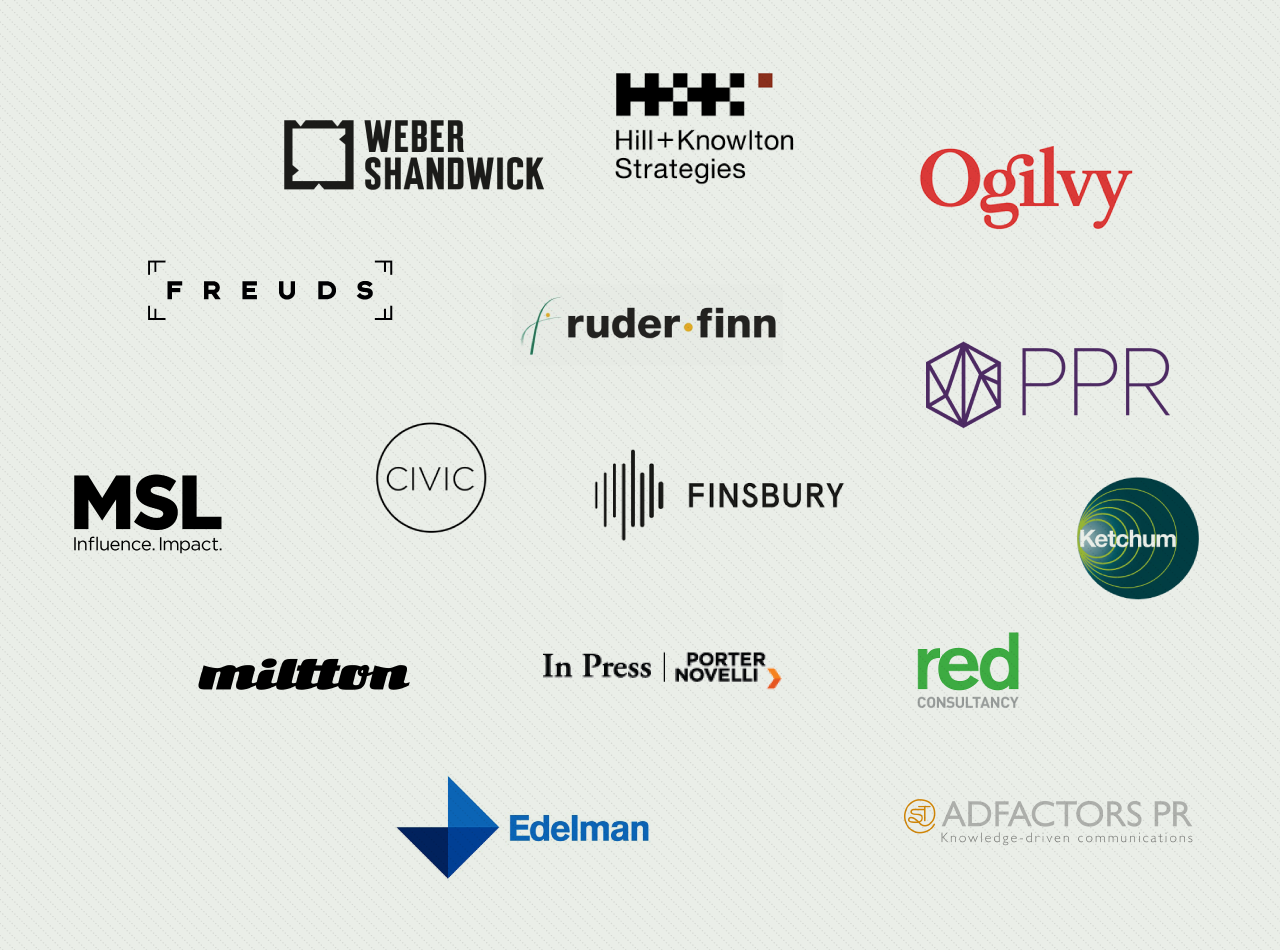 For the sixth year in a row, Edelman is the most frequently cited public relations agency when respondents were asked which firm they most admired. Other consultancies with repeat mentions include Weber Shandwick and Brunswick, with Ruder Finn mentioned more than once for its work in China.
For the sixth year in a row, Edelman is the most frequently cited public relations agency when respondents were asked which firm they most admired. Other consultancies with repeat mentions include Weber Shandwick and Brunswick, with Ruder Finn mentioned more than once for its work in China.
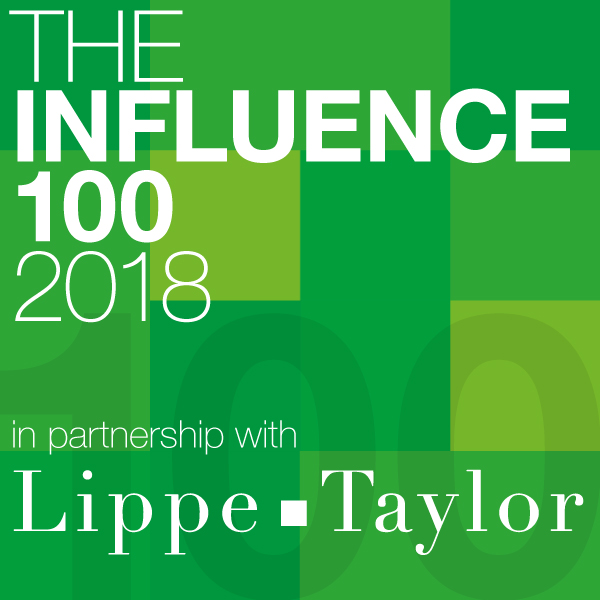
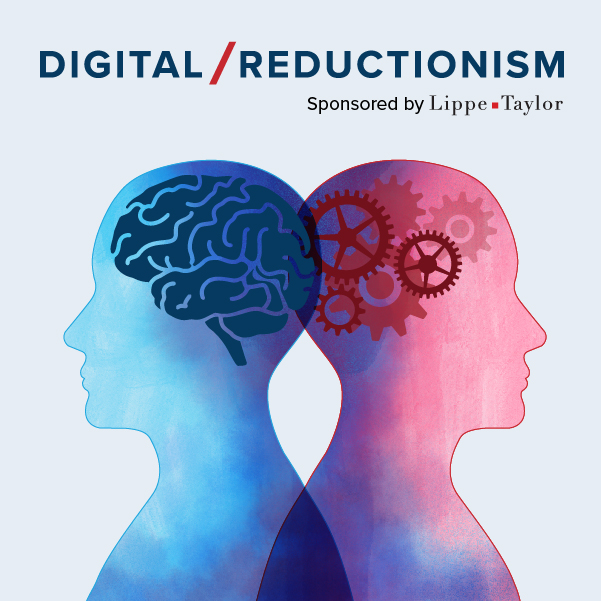

Intelligence and insight from across the PR world.
About PRovoke Media Contact Us Privacy & Cookie PolicyWe feel that the views of the reader are as important as the views of the writer. Please contact us at [email protected]
Signup For Our Newsletter Media Kits/Editorial Calendar Jobs Postings A-Z News Sitemap© Holmes Report LLC 2024